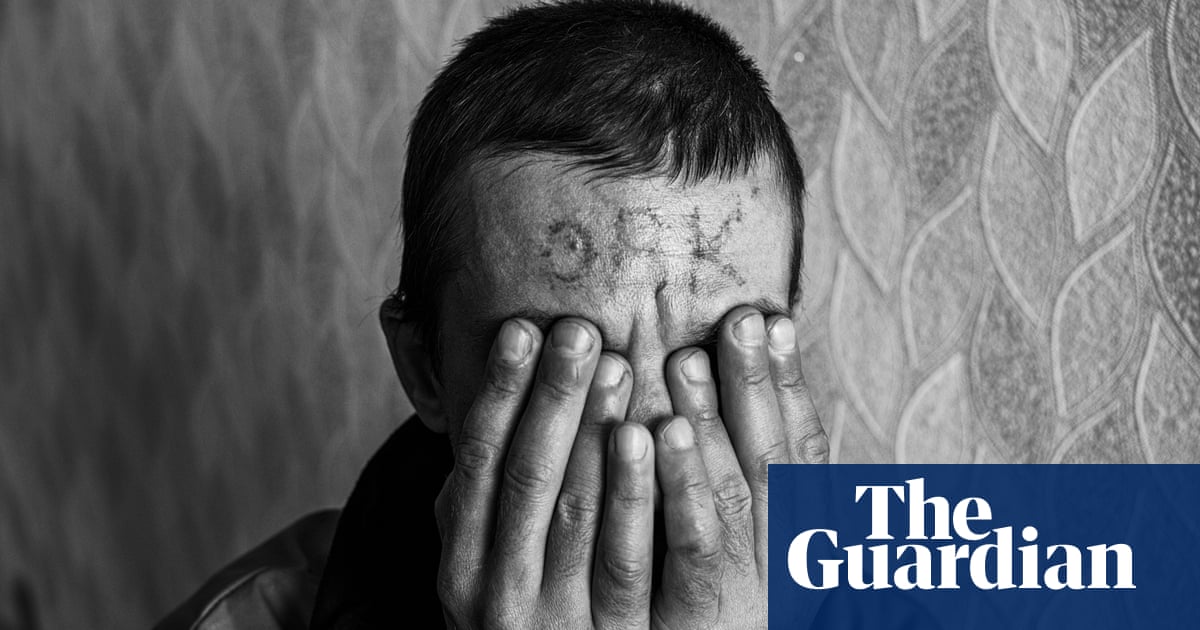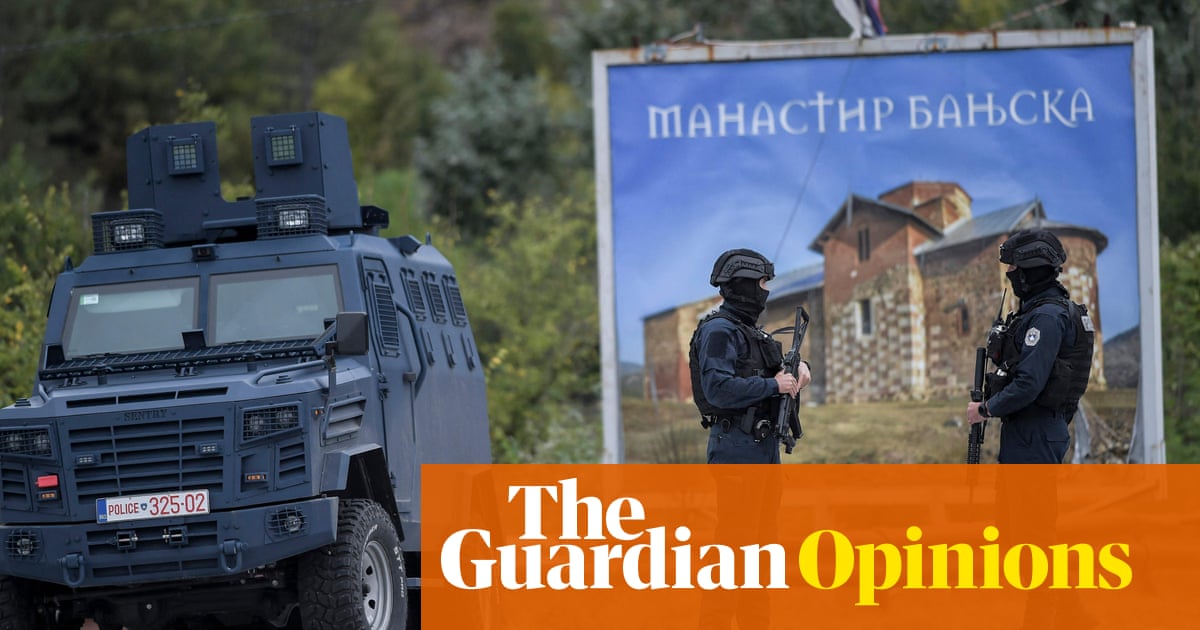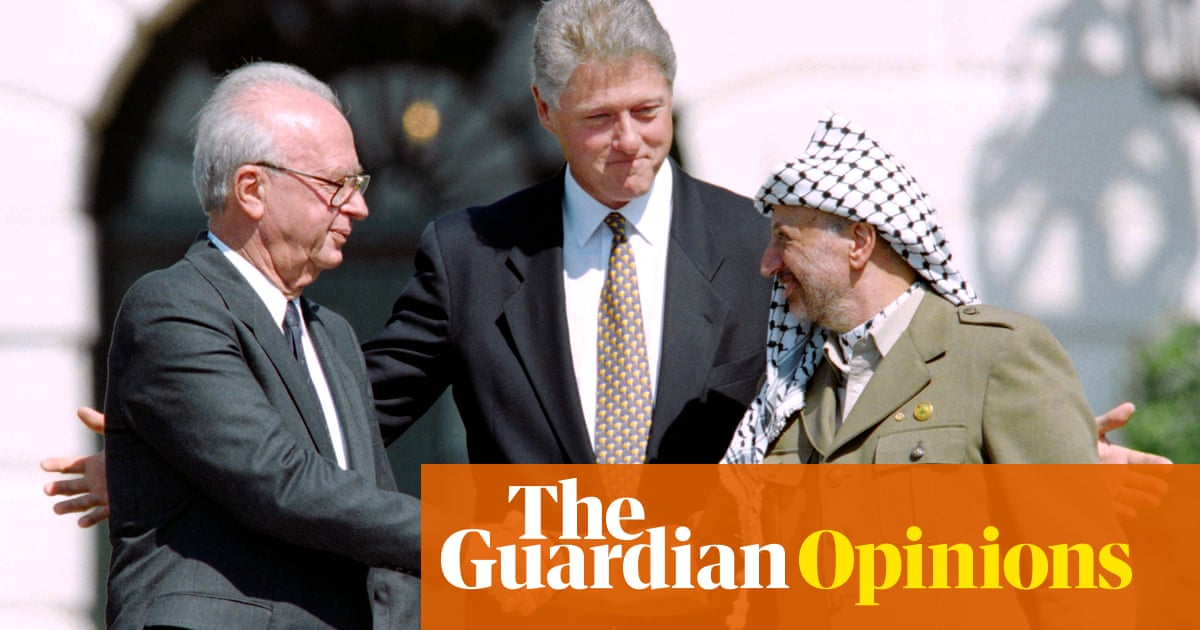
Alongstanding supporter of Russia who shared classified information about Ukrainian troop movements. A woman who said her husband had secretly sent information and maps to the Russians using her phone. Another woman targeted by online flirting that turned out to be a Russian intelligence sting.
One by one, the prisoners entered the visiting room to tell their stories. The women were dressed in prison uniforms of thick grey winter coats with a headscarf knotted over the hair, and the men in regulation brown overalls. All were serving sentences for one of two crimes under Ukrainian law: cooperation with the enemy state, Russia, or providing the enemy with information about Ukrainian troop movements.
Ukraine’s SBU security service says it has opened more than 8,100 criminal proceedings “related to collaboration and aiding and abetting the aggressor state” and Ukrainians convicted on these counts are only held in certain prisons, where they are kept away from other inmates. The Guardian was granted rare access to two such prisons – one for men and one for women – on the condition that their locations would not be revealed.
Interviews took place with a prison guard in the room but participation was voluntary. Some prisoners did not wish to be interviewed at all, others told their stories on condition of anonymity, while many were willing to speak openly and be photographed.
Most of the high-level turncoats managed to flee to Russia, meaning it is mostly lower-level collaborators who are in jail. As Russia continues to strike Ukraine, causing death and misery, there is scant sympathy for these people, as evidenced by one male prisoner with a 12-year sentence who agreed to be photographed but declined to share his name. He had been assaulted by his cellmates while in pre-trial detention. They tattooed the word “Orc” – a pejorative term for Russian soldiers widely used in Ukraine – on his forehead.
Among the prisoners there are different shades of guilt. Some have clearly put Ukrainian lives at risk by handing over information and coordinates to the Russians. In other cases, such as a woman jailed for five years for providing logistical assistance during Russia’s fake referendum in Kherson region, the facts of the case point to the difficult decisions people were forced to make when faced with an occupying force that claimed it was there to stay.
Every story was different, but taken together, they shed light on a largely hidden element of Russia’s war in Ukraine: the fate of Moscow’s local helpers.
Anyuta Holomb was running an errand at the bank in Chasiv Yar, close to the frontlines in Donbas, when Ukraine’s security services arrested her in December 2022. They took the 30-year-old back to her home and found screenshots of maps marked with the positions of Ukrainian forces and sent by Telegram to a Russian number.
Her husband was also arrested. Holomb had married him in 2019 shortly after he was released from jail. He had served five years for co-operating with the so-called Donetsk People’s Republic. She claimed she never discussed politics with her husband, describing herself as largely apolitical and focused on raising their daughter, who was born in 2021. “Of course I wanted to be part of Ukraine, but the main thing was that there were jobs and that our children were alive and close to us,” she said.
In June 2022, her husband’s father was killed in a Russian airstrike, she said. Despite this, her husband had been sending photographs from his phone to a “girl in Donetsk”, who Ukrainian authorities assume was working in some capacity for Russian intelligence. The compromising material was also found in her phone, said Holomb. She claimed her husband had been using her phone under the guise of playing games. “I didn’t know anything about it. But he decided to give testimony against me too, so that they would exchange us together as a family,” she claimed.
Holomb admitted her guilt, she said, because she felt she had no choice. She was sentenced to 15 years in prison. She is currently with her two-year-old daughter in prison, but after her third birthday the child will be taken away. “Everyone was in shock at the sentence. My mum hired a lawyer, we filed an appeal but it was too late,” she said.
Holomb has now signed a request asking to be swapped in a prisoner exchange and sent to Russia, as she thinks it is her best chance of being freed. She has never set foot in the country before.
Many of those the Guardian interviewed insisted their innocent activity had been misinterpreted and they had then been pressured into signing confessions. Valentyn Moroi, a 52-year-old from Sloviansk, said he had merely taken photographs of the warehouse where he worked, to prove everything was secure, and sent them to his boss, who was in Russia. The SBU had taken this as evidence he was sending classified information to Russian intelligence, he claimed.
Kostiantyn Vanin, a 34-year-old geography and physics teacher from Sloviansk, was detained driving across the frontline near Bakhmut, he said because he wanted to reach friends in Crimea. He said life is “more peaceful and more stable” on the other side, but claimed he had not shared any information about Ukrainian army positions. He admitted guilt under pressure, he said.
Some, however, were open and unapologetic supporters of Russia. “My parents raised me to fight fascism, and here there is fascism,” said 57-year-old Yuri Tsybulsky, from Bakhmut, who was given a 13-year sentence for treason. He admitted sharing information about Ukrainian troop movements.
Oksana Kuzmych’s family said she was staunchly pro-Ukrainian. Her husband had fought during the conflict in Donbas in 2014-2015, but found it difficult to readjust after serving, and died a few years later. A number of close relatives are currently serving in the Ukrainian army.
The 47-year-old, currently one year into a five-year sentence, had stayed behind in the settlement of Novooleksandrivka in Kherson region when the Russians occupied it quickly after the start of full-scale war to take care of her mother-in-law, who is immobile. At the end of September 2022, the Russians held a fake referendum in Kherson region in order to proclaim it part of Russia. Kuzmych was offered a modest payment for helping with the organisation. “We had no money, so I agreed to carry a ballot box, just one box on one street, that was it,” she claimed.
A week later, the Ukrainian army liberated the town. Russia’s senior local helpers fled but Kuzmych and other low-level auxiliaries stayed behind. They thought they had done nothing wrong, and anyway did not want to go to Russia. A few weeks later, Kuzmych was arrested along with three other women, including the director of the local cemetery, and charged with aiding in an illegal referendum.
Kuzmych’s daughter Olha, who is currently living in Poland, said: “She was pro-Ukrainian. If they had checked her phone they would have found our Telegram chats where we wrote bad things about Russians to each other. She knew the Russians might check her phone and she wrote anyway.”
Olha, who was able to get through to her mother for a brief telephone call in December for the first time since her arrest, said she was worried for her mother’s health and praying for her early release.
While most of those the Guardian met were from Donbas or other places close to the frontlines, one woman was from Kyiv. She agreed to tell parts of her story on condition of anonymity.
She explained how, in the early days of the war, she began chatting with a man who introduced himself as being from the FSB, Russia’s security agency. At the time, she said, she was struggling under the stress of war and desperate to leave Ukraine. She was constantly arguing with her husband, who did not want to leave, when the Russian man made contact via Telegram.
“We talked about stuff, about books, it got really flirty,” she recalled, speaking quietly and with visible anguish. The man suggested that the Russians could exfiltrate her to Russia, give her a passport, and hinted at the possibility of romance. First, though, she had to take photographs of particular sites around Kyiv of interest to the Russians. “I said I’m not going to go, and he started to blackmail and threaten me. This was the most surprising thing, how his tone changed in a second,” she said.
In the end, she was arrested by the SBU, and given an eight-year sentence for the illegal sharing of information during martial law. “My family has disowned me, my friends have turned their backs on me. Only my husband, the husband I wanted to run away from, has extended a hand of support and forgiven me,” she said.
Many of the prisoners have signed documents asking to be exchanged with Russia. Some always dreamed of ending up there; others realise it is their best chance of being freed before the end of their sentences.
“Each individual case has to be discussed separately,” said Oleksiy Danilov, the head of Ukraine’s national security council, when asked about the process for a potential exchange. He said, however, that if Russia made an offer and people wished to be exchanged, in principle Ukraine was willing to give them up in exchange for some of the many Ukrainian civilians kidnapped from occupied territories and held in Russian jails. So far, however, there is little sign that Russia is interested in taking in its low-level helpers.
Not everyone has signed up to be exchanged, however. The woman from Kyiv said she planned to sit out her sentence and repent her actions. “I hate myself for what I’ve done. I made a huge mistake, out of idiocy. I believed them, and they made a fool out of me,” she said.












